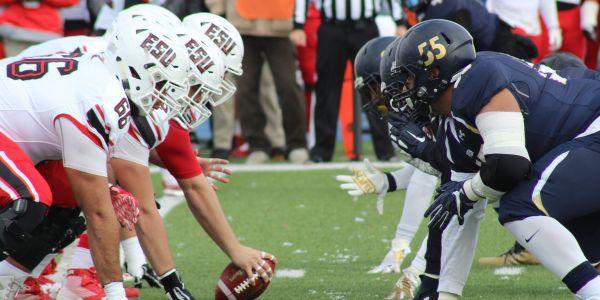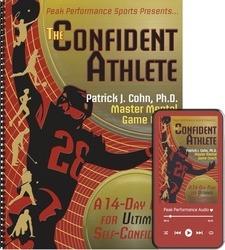
Expectations equals pressure for athletes…
Pressure is a normal part of sports for athletes. In fact, you would be hard pressed to find athletes not make some type of reference about pressure they felt.
As you become more competitive, pressure seems to increase and, for many athletes, that can be an overwhelming aspect of the athletic experience.
Athletes respond to pressure in different ways. That is, pressure has different sources, is perceived differently, and affects athletes in different ways.
Pressure often comes in the form of expectations you might feel:
- I have to be perfect and make no mistakes.
- I have to perform well for my teammates.
- I can’t let down coach or I’ll get benched.
Pressure is self-induced most of the time. You think others have high demands for your game–often the same demands or standards you have for your game.
But I have to admit, sometimes parents and coaches can have demands for athletes.
“What do you have to go to when the garbage hits the fan, because it will hit the fan. Get comfortable with being uncomfortable.” ~Ken Ravizza, Ph.D.
Some athletes feel the need to carry their teams on their back or outperform previous performances or always have a PR in the race.
Most of this pressure comes from the perception of excessively high expectations, which lead to the feeling or pressure. Some athlete thrive, while others might choke.
But guess what? When you feel the weight of expectations and the pressure to perform, you might try to do too much. This leads to trying to be perfect and avoid mistakes.
But the opposite can happen… Athletes under pressure might feel the need to play it safe and perform tentatively.
Anyway, the pressure to perform can be heightened for athletes in the playoffs…
“Pressure is self-inflicted because you’re focused too much on results. You want to ask yourself, ‘what do I have to do each day so you can win a championship’?” ~Nick Saban
But make no mistake about it, you can’t heap expectations upon yourself and perform freely. It’s big ask to think you need to hoist your team on your back, have a PR every race, or score a hat trick every game.
Coping with Pressure When Expectations are High:
Here’s the deal: Performing with self-induced pressure requires that you “play within yourself” and not play safe no matter if it is regular season, playoffs or a championship competition.
In order to cope with perceived pressure, you want to manage both your expectations and the expectations you feel from others…
What expectations (high standards) do you place on your performance leading up to a competition?
Most of the athletes we coach on the mental game perform their best when they don’t have strict expectations going into the competition.
To cope better with pressure, start by not caring so much about what you think others expect of your performance, including parents, coaches, fans, and friends.
This way you can let go of the expectations you perceive from others and free yourself to focus on execution of the game plan, one play at a time.
Related Sports Psychology Articles
- How to Perform Under Pressure with Confidence
- How to Compete Well in Pressure Moments
- How to Perform Big in Pressure Moments

The Confident Athlete (Digital Download)
“The Confident Athlete” audio and workbook program helps you feel confident before you walk onto the field, track or court. You discover how to have stable and proactive confidence so you can think like a champion.
“I just finished ‘The Confident Athlete Program.’ Improving confidence is a never-ending process. I think that confidence boosting is an awesome area. Having a daily mental plan for mental “work outs” can turbo charge anyone’s confidence level…. Studying almost all of Dr. Cohn’s mental game materials gives me a real EDGE over my competitions and most importantly – a boost in my daily life.” ~Radek Sefcik, Peak Performance Sports Customer

